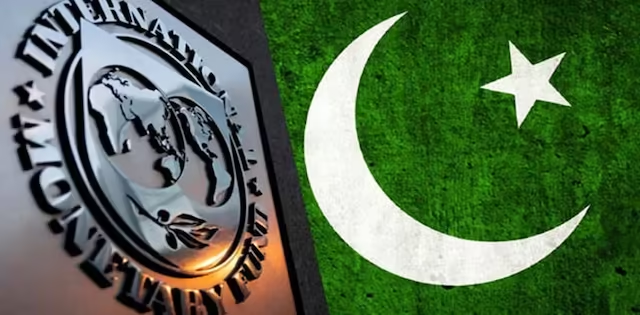The Pakistan IMF Economic Outlook highlights regulations on functional and fiscals structural reforms on taxation and energy to stave off adverse economic conditions while positioning the Focused and Accelerated growth on the 2030 economic growth target.
For many Pakistani families economies and budgeting is not on or about the graphs. It’s all about the increasing prices of Groceries like tomatoes and their high price monthly utility bills. Latest and recent reports of the Regional Economic outlook for the Middle east and central Asia too, from the IMF states that these daily tensions and worries are deeply connected to the major national challenges. The Pakistan IMF Economic Outlook brings these issues into sharp focus.
While the outlook on the economy remains gloomy, the IMF expects the GDP growth for Pakistan during the current financial period to stabilize at three-point-six percent. Unfortunately, it remains below the government’s relatively high target of four-point-two percent. What is holding the economy back? Beyond the immediate damage, the economy is still dealing with the consequences of the catastrophic floods that ravaged the country.
The Cost of Calamity
The IMF mentions that economic slowdown is a direct consequence of the natural disasters and destructive floods. For the million people, whose crops were destroyed and whose livelihoods depend on the damaged infrastructure, these are not just statistics. The Fund explains that the losses will lower the income of exposed communities and increase general prices. The consequences are clearly outlined in the Pakistan IMF Economic Outlook.
Based on what is heard from one economist who knows the report well, “An entire harvest loss might be a personal tragedy, but it sweeps through the city and impacts the price of the staple food.” “When there are lost harvests and floods, we pay them over the coming months in the form of increased grocery prices.”
The most pressing concern is of inflation. The IMF warned that inflation remains a threat and the cost of living will rise even more. The cause of this is the ending of electricity subsidies and flooding which is causing supply problems. The report predicts food and energy prices will rise most dramatically, impacting low and middle-income households the most. The inflation warning is a key takeaway from the Pakistan IMF Economic Outlook.
Stability Hinges on Reform
Despite the potential difficulties, the report was positive regarding the efforts and resilience Pakistan has shown. In signs of positive progress by the Pakistan government, the current report by the IMF can say that Pakistan is taking positive steps towards obtaining a positive current account balance. Regarding the account balance, the report also states that remittances from Pakistanis living abroad have helped Pakistan and assessed the country’s overall account balance. This positive remittance will be beneficial for Pakistan and the overall health of the economy. The remittance support is vital for the Pakistan IMF Economic Outlook.
The IMF applauded the efforts made by the country regarding the reforms and predicted that reforms will be critical for the country’s future stability. This establishes the country’s future economic potential relative to the painful steps the government is currently taking. The IMF also predicted that economic growth for the country will improve to 4.5% and increase the economic growth towards the 2030 target which will be a significant factor toward the country’s overall positive outlook.
To achieve those positive changes, the IMF suggested some really deep and maybe extreme structural changes especially within the tax and energy systems. The report also suggests the government to remove short-term subsidies within various sectors. From a political level this is very challenging as no one wants to see an increase in price on fuel and electricity, however, the IMF views these short-term measures as costly distractions that hide underlying structural issues and even stagnate sustainable growth. The advice for reform is paramount in the Pakistan IMF Economic Outlook.
To sum up, the reports on the economy predict moderate growth with the natural disasters financing damages. Also, the forecasts suggest that the economy will deal with the inflation soon. However, the economy is starting to fundamentally balance and grow. The completion and discipline to remain on the only obtainable road to stability suggest that will be necessary to endure short term sacrifice. However, the long-term pros will be worth the pain. This path is supported by the insights of the Pakistan IMF Economic Outlook.



